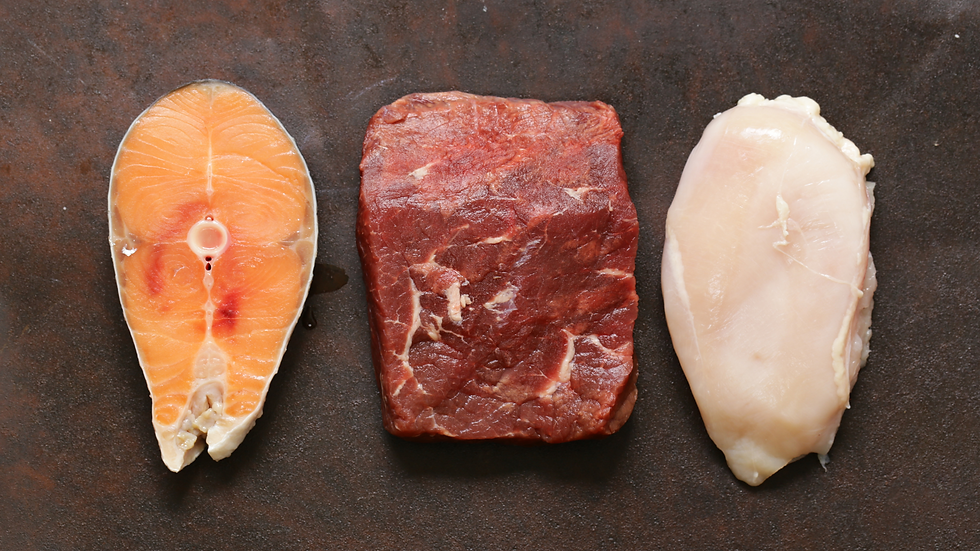
Let’s take a trip to the Mediterranean- or, at least, let’s take our plates there. The “Mediterranean Diet” is a generic term that refers to the diet traditionally eaten in cultures bordering on the Mediterranean Sea, including countries such as Spain and Italy. The concept was first published in the mid-1970s (though didn’t really find popularity until the mid-90s), based on extensive epidemiological studies in Calabria, Naples, and Madrid. Essentially, these studies revealed that individuals in these areas exhibited lower incidences of cardiac events like heart attacks and strokes. They also revealed that as these cultures slowly incorporated more Westernized eating habits, rates of cardiac events began to rise. Since then, extensive research has continued to demonstrate the “heart-healthy” benefits of the Mediterranean diet. It’s a favorite recommendation to patients of many physicians (particularly cardiologists), including myself. Personally, I follow the diet at home as well!
You may have asked yourself- what foods are allowed and discouraged on the Mediterranean diet? While you may have heard the term “Mediterranean diet” before, it can be helpful to truly break it down, piece by piece. Read on, and we’ll chat about why each element of the diet is so vital to heart, and whole-body health.
Fruits and Vegetables
We’ve been told to “eat your veggies” since we were children, and the truth is, Mom was right. Fruits and veggies are an important part of any healthy eating plan, and feature heavily in the Mediterranean diet. Rich in vitamins and minerals, fruits and vegetables are well documented to reduce your risk of cardiovascular disease. In fact, this study demonstrated that individuals eating 8 servings of fruits and vegetables a day were 30% less likely to experience a cardiovascular event, when compared to those eating just 1.5 servings a day.

The Grocery List:
Apples
Apricots
Strawberries
Brussels sprouts
Carrots
Broccoli
And more!
Healthy Fats
Another important component of the Mediterranean diet is healthy fats, in particular, olive oil. Revered by the Romans and the Greeks, olive oil has been an important part of Mediterranean food, culture, and medicine for centuries. This is for good reason. Olive oil is high in monounsaturated fatty acids, which can help lower your LDL, or “bad cholesterol”. It can also function as an antioxidant and anti-inflammatory. Other healthy fats to reach for in the Mediterranean diet include nuts and seeds. Just try to make sure they’re dry-roasted, and unsalted!

The Grocery List:
Extra-virgin olive oil
Avocado
Almonds
Walnuts
Chia seeds
Whole Grains
Today, many choose to forgo carbohydrates completely, however, the Mediterranean diet actually incorporates plenty of whole grains. Unlike refined grains, like white bread, whole grains are nutrient dense. They contain plenty of bran and fiber, which slows the breakdown of starch into glucose, helping to keep your blood sugar stable. Fiber can also help to lower cholesterol, and keeps you full for longer, preventing unhealthy snacking. However, use care when choosing your whole grains at the grocery store. Make sure to take a look at the ingredient list. You want to choose items that list whole grain as the first ingredient, and don’t contain too much added sugar.

The Grocery List:
Brown rice
Quinoa
Oatmeal
Whole grain bread and pasta (in moderation)
Fish and Lean Meat
Fish and seafood feature heavily in the Mediterranean diet, and are fantastic sources of protein. In addition, some fattier fish provide plenty of omega-3 fatty acids, which are extremely beneficial to your cardiovascular health. They can help to lower triglyceride levels, lower blood pressure, and boost your HDL, or “good cholesterol”. The Mediterranean diet can also incorporate some lean meat, including chicken and turkey. These are great alternatives to red meat, which has higher levels of saturated fats and is associated with increased rates of cardiovascular events. However, it’s my opinion that if you choose healthy, organic, pastured grass-fed meats you will sidestep some of the potential risks of red meat.

The Grocery List:
Salmon
Albacore tuna
Chicken breast
Ground turkey
What to Avoid
While it isn’t hard and fast, there are a few things you should try to avoid on the Mediterranean diet. The plan emphasizes whole, plant-based foods, and healthy fats. Heavily processed foods like frozen meals, sodas, and sugary baked-goods should be limited. Try to skip processed red meats like hot dogs and bacon, and substitute them for lean poultry instead. Use more olive oil, and forgo products with white flour, like most sandwich bread and dried pasta. Eat organic as much as possible. Check out EWG “the dirty dozen” that tells you which fruits and vegetables carry the largest toxic burden, and buy those organic . Finally, limit your alcohol consumption- although some red wine is ok. However, try to stick to no more than a glass a day.
One of the best gifts we can give to ourselves is our health. While the Mediterranean diet is a fantastic option for anyone looking to prioritize their heart health, it doesn’t need to have one look. Speak with your doctor before getting started, and we can help you customize the plan to your lifestyle. Finally, if you’re feeling overwhelmed at the prospect of overhauling your entire diet: take a deep breath. If you are looking for a simple step to get started on the Mediterranean diet, simply go through the listed foods above and try to add one from each category to your weekly grocery list. Baby steps lead to big changes- so if all you do today is toss out those cookies in the back of your cupboard: I’m proud of you! Slow and steady wins the race.
For appointments with Dr. Orfanos, visit caseintegrativehealth.com and fill out the "appointments" form, or call 773-675-1400. Case Integrative Health is proud to serve patients in the Midwest, Chicago and the US.